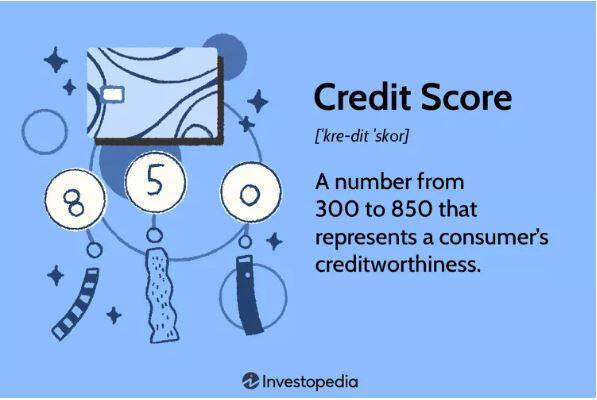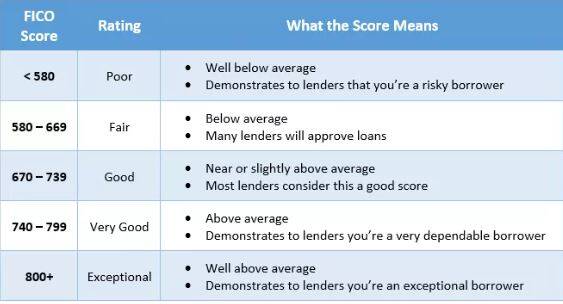Credit
A credit score is a number from 300-850 that represents how likely a person is to default on their debt or how worthy they are to receive new credit. In general, the higher your score, the more likely you’ll be approved and get better terms on credit products. To determine creditworthiness, lenders take a borrower’s credit score into account, but they also consider other details, such as income, how long the borrower has been at their job, and the type of credit requested.

Credit Report VS Credit Score
Your credit report is a record of how you manage your money. That data is then used to calculate your credit score. If you have any credit accounts, such as credit cards or loans, you have a credit report. Your credit report outlines how much debt you carry, the high balances, the credit limits, and the current balance of each account. It will also flag any important information for the potential lender including whether you've had any past due amounts, any defaults, bankruptcies, and collection items.
Why is it Important?
Your credit score determines whether or not you will be able to get a credit card, take out a loan, or even rent a house. Without a good credit score, you won't be able to take out a car loan, get a mortgage, rent, or take out any kind of personal loan. Your credit also determines the interest rates that you pay on these loans and the length of the loans. A person’s credit score also may determine the size of an initial deposit required to make large purchase such as a smartphone, cable service, or utilities, or even the deposit to rent an apartment.

What is Considered Good Credit?
In general, the following guidelines are used:

Who Sees Your Credit?
- Landlords
- Mortgage lenders
- Credit card companies
- Others who are deciding whether or not to extend you credit.
Credit Reporting Agencies
A credit reporting agency is a business that maintains credit data on individuals and businesses. They receive reports from lenders and various other sources, compiled in a credit report that includes a credit score when issued.
Purposes
- Maintain credit information
- calculate credit scores
- Provide credit reports
The 3 Main Credit Reporting Agencies
- Experian
- Equifax
- TransUnion
This trio dominates the market for collecting, analyzing, and disbursing information about consumers in the credit markets.
Sources:
Adam Hayes. FICO Score. Dotdash Meredith. 18 February 2023.
Julia Kagan. Credit Reporting Agency. Dotdash Meredith. 3 March 2021.
Rajeev Dhir. Creditworthiness: Definition, How to Check and Improve It. Dotdash Meredith. 5 April 2021.
The Investopedia Team. Credit Score: Definition, Factors, and Improving it. Dotdash Meredith. 18 September 2022.
TransUnion. How Credit Scoring Works. TransUnion. 17 November 2020. Retrieved from How Credit Scoring Works | TransUnion.
TransUnion. What is a credit score? TransUnion. Retrieved from What is a Credit Score & How is it Affected | TransUnion.
Create Your Own Website With Webador